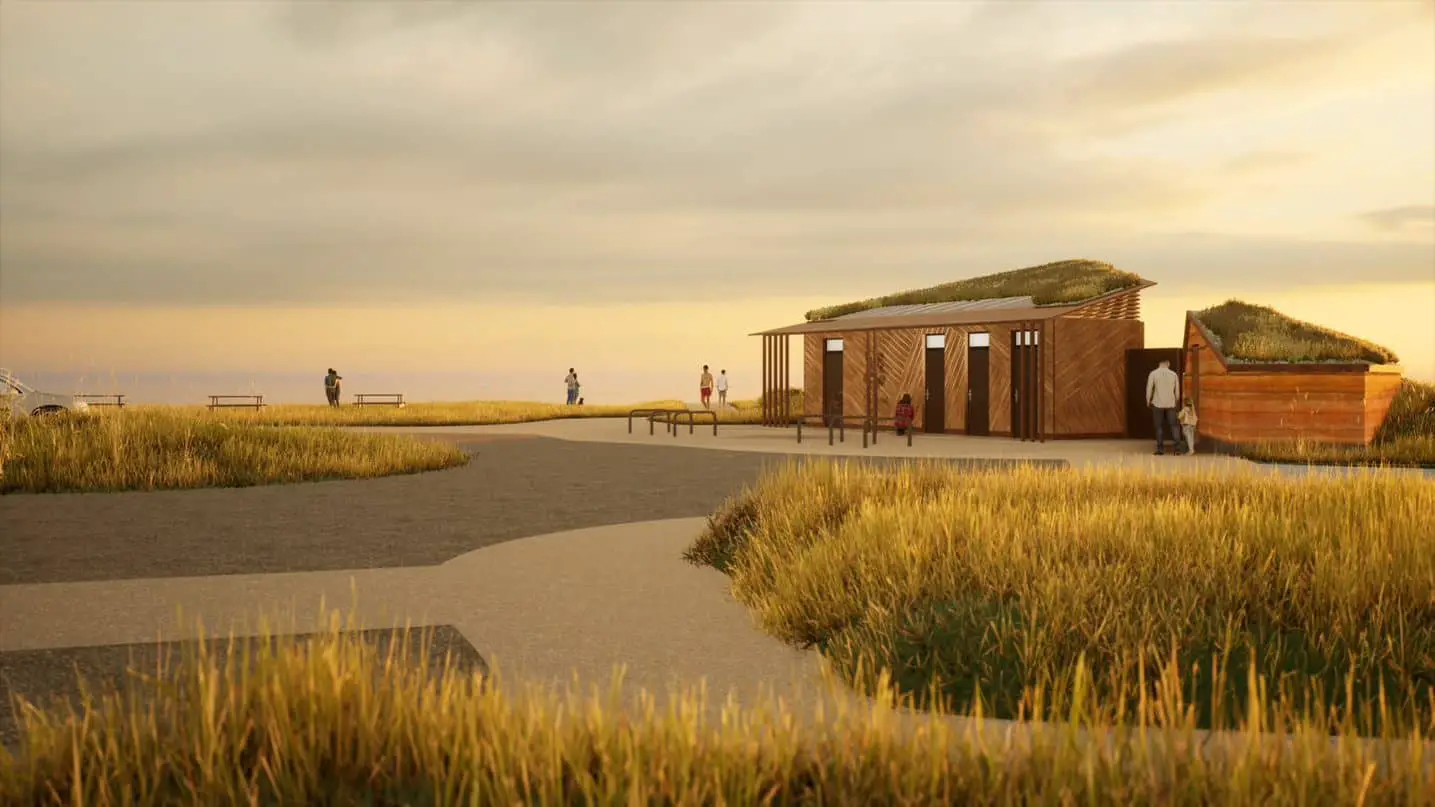Plans to improve toilets at Compton Bay on the Military Road have been submitted.
The National Trust revealed the ideas for its Hanover Point car park last month but is now seeking approval for its plans from the Isle of Wight council.
Part of a wider review
Planning documents submitted on behalf of the national body by Island planning agents ERMC, says the project is part of a wider review of the strategic importance of the coastline and the wider context by the trust.
It says the goal is to improve access for all, increase engagement with the natural realm and improve amenities for the wider public as part of the trust’s ongoing investment.
What is planned
The old toilet building would be demolished and replaced with a larger block that has an accessible changing area.
It would then be pushed back from the entrance, allowing widening which ERMC.
ERMC said it is believed the land on which the car park and toilets sit will not be around in 25 years due to coastal erosion.
Modular design
So the toilets have a modular design so they could be dismantled easily and moved further inland when it was felt necessary.
The site on the Military Road is part of designated areas which protects its natural habitat, including the Area of Natural Beauty; a Site of Special Scientific Interest; a Special Areas of Conservation and a Solent Protection Area.
Natural materials
With the sensitive nature of the site in mind, ERMC say the new look would contain as many natural materials as possible.
The roof of the toilet block could feature solar panels and a sedum, green roof.
If the new toilets are approved, the old ones will remain in use until the new block is completed.
Additional bicycle parking could be included, having the capacity to park 24 bikes.
View the plans
You can view the plans. 22/02195/FUL, on the Isle of Wight council’s planning register.
The public consultation runs until 18th January.
This article is from the BBC’s LDRS (Local Democracy Reporter Service) scheme, which News OnTheWight is taking part in. Some alterations and additions may have been made by OnTheWight. Ed





